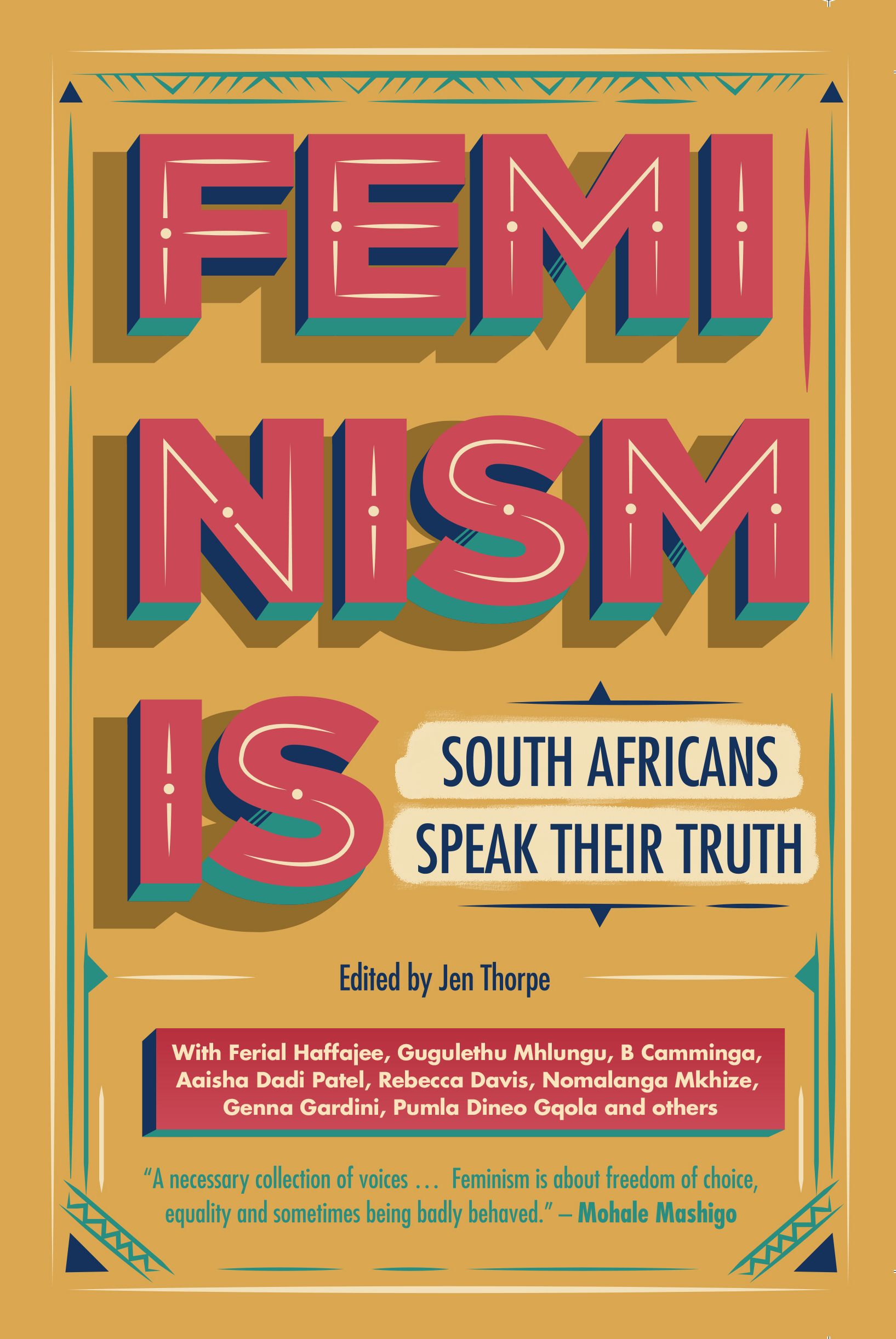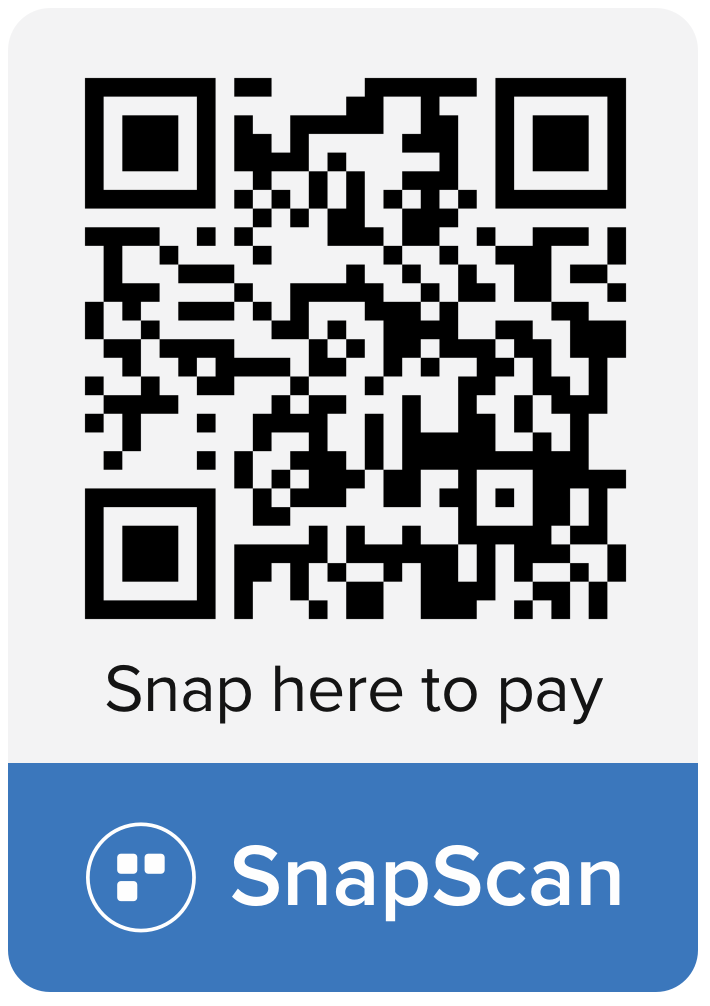
Feminism Is
A collection of essays exploring feminism in South Africa. Do you call yourself a feminist? What does this mean in your daily life? In this book, South African feminists explore their often vastly different experiences and perspectives in accessible and engaging voice. Feminism Is touches on issues as wide-ranging as motherhood, anger, sex, race, inclusions and exclusions, the noisy protest and the quiet struggle. It will challenge your thinking and inspire you to action, reaffirming the urgent necessity of feminism in South Africa today.
$35.00
Buy the Kindle version from Amazon, here.
Or buy a copy for R299 using SnapScan, below.
Reviews
Between 10and5: Reading this collection of pieces acts both as a meditation, and as a window into the wider world of personal links to feminism at large. It is joyous, thought-provoking, exciting and expanding.
Affinity Magazine: Feminism Is is the glorious, raw and much needed result of years and years of suppressed anger, discord and injustice. If you want to get impassioned, angry, educated and inspired, Feminism Is is the perfect book for you. Each essay will draw you in with compelling stories, brilliant viewpoints and quality writing. This book answers old questions, poses new ones, challenges your thinking and inspires change. For South Africans, especially, it is great to finally have something concrete to use as a tool to battle the ever-present sexism and misogyny in this country.
Sugary Oblivion: With a contents list that reads like the who’s who of South African feminism, you’re bound to find something by someone you admire, and the writing ranges from touching and tender to academic and hard-hitting, and everywhere in between…Filled with brave and intelligent voices from feminists who, like many of us, are still trying to figure things out, as far as representation goes, ‘Feminism Is’ shines, with the inclusion of many feminists you may have seen on Twitter, on television or in the media.
The Daily Vox: Whether you identify as a feminist or not, this is an excellent book as a starting point for engaging with the issues. It doesn’t answer all of the questions but it does pose new questions for taking the discussion around feminism, inclusion, exclusion, patriarchy, and struggle forward.
Litnet: The misconceptions about feminism abound. Thus it is heartening to read a collection of essays written by South African feminists about what feminism means to them…I recognise how much work I, personally, need to do in order to live a kinder, more conscious life. While reading the essays in this collection, I found myself repeatedly rethinking my own attitudes.
Perdeby: All of the contributions by the different authors are written beautifully and when read together encapsulates all the sides to feminism and accurately describes what feminism means, how to be a feminist and why feminism is still needed in South Africa.
The Weaving Room: If there is a book that succinctly illustrates voices, variances but a common goal to disrupt and revolutionize spaces as gently or as fiercely as possible, this is it.
Cape Argus: …this book is important, not only to get an understanding of what feminism actually means in the modern context (and believe me, your eyes will be opened), but also to appreciate, as veteran journalist-editor Ferial Haffajee observes in her contribution, “there is a long road to freedom, given that one in two South Africans lives in poverty, and that most of those compatriots are black women.”
Times Live: What the collection does best is show that feminism is a diverse movement, and this means feminists must be respectful both on and off social media while listening to each other as the movement evolves and progresses.
Brittle Paper: While the focus of the book is on feminism in South Africa, the takeaways have universal application. The book reopens and extends some of the big questions we’ve always asked about women’s experience—questions about gender roles, equality, intersectionality, trauma, organizing, etc. But more importantly, the South African focus of the book, if anything, clears out a space where the question of feminism can be posed, first and foremost, as an African question. A project like this allows us to block out, if only momentarily, the noise of that strain of feminism designed by and applicable only to western contexts. When all is said and done, however, what makes this collection so powerful is that it invites women the world over to draw inspiration from South African women’s experiences and their unique take on what feminism is.
Logosophical: There are truly so many gems in there and just general food for thought. I’d go so far as to say that it must be mandatory reading for contemporary South African feminists because it provides an exposition of what feminism looks like in real life, as a lived ideology, and that is such an absolutely fascinating exposition, and perhaps one that’s a little more thought-provoking (because of its proximity to our own lived experiences) than reading just feminist theory as a means of acquainting oneself with the subject.
The Nigerian Voice: Literature on feminism and domestic politics in Africa has been known to be a reserve of Chimamanda Ngozi Adichie for a long time, but now things are taking a new direction, there is a new anthology of essays on on feminism, edited by Jen Thorpe and Published by Kwela books in South Africa … Lessons from Feminism go beyond South Africa to enjoy universal application. The book deals with universal issues and big questions like equality, inter-sectionality, trauma, and gender focused organizing .The anthology invites women the world over to draw inspiration from South African women’s experiences and their unique take on what feminism.
